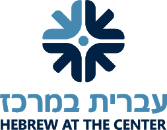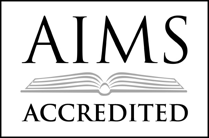Lifelong Learning at JPDS-NC
September 1, 2016 by
Every August, I find myself counting the days until the start of the academic year when the building fills with the sound of children’s greetings, laughter, and excitement, and the school begins to hum with the energy and whirring minds of the teachers. As in years past, we began preparing for your children not by setting up classrooms, planning lessons, or structuring class routines, although these are all important components of a successful school year. Rather, we began with two amazing and jam-packed days of learning from each other, as teachers led workshops for their colleagues to share the things that most excited and inspired them from their own summer exploration and professional development. It is incredibly powerful and moving to see a group of educators return from the summer and immediately and enthusiastically begin learning together, to feel the energy build and grow as the ideas fly across the room. This August, JPDS-NC teachers taught each other how to use Thinking Routines to develop empathy and perspective-taking, how to engage deeply in the process of Design Thinking, as well as how to make thinking and learning in the classroom visible and use that documentation to inform and enrich teaching and further exploration. These are only a few examples, but they highlight our staff’s commitment to cultivating an environment of continual growth and reflection among adults and children. Let me be blunt: this teacher passion for ongoing learning and professional growth is simply not the case at every school. As a veteran of several schools and newcomer to the community, I am impressed and energized by my observations of and interactions with our teachers over the past few weeks and am keenly aware that this is one of many factors that make our school such a special and incredible place to be.
Two years ago, the school received a Legacy Heritage Fund Headway Grant for staff development and enrichment. Among other things, these funds allowed our staff to engage in “deep dive” research into 21st century best practices that encourage thoughtful exploration, collaborative and individual problem-solving, constructing knowledge, student agency and empowerment, design thinking, and connecting with the world around us. This summer JPDS-NC staff continued to dispel the myth that a teaching job comes with two months of paid lounging time by eagerly attending a wide variety of professional conferences and other development opportunities. For the second year in a row, we sent a large cohort to WISSIT (Washington International School Summer Institute for Teachers), a week-long institute dedicated to connecting educators with the ideas and best practices from the Harvard Graduate School of Education’s Project Zero. Other teachers began a two-year Masters program in the Proficiency Approach to teaching Hebrew at Middlebury College. Still others attended the Nueva School’s Institute for Design Thinking, the JASON Learning National Educators’ Conference, and completed an online course through JETSIsrael on using educational technology in the Hebrew language classroom. As we move into the school year, the staff will be reading and discussing Ron Ritchhart’s Creating Cultures of Thinking: The 8 Forces We Must Master to Truly Transform Our Schools. We invite you to read along with us as we continue our exploration of what powerful and meaningful thinking looks like as classroom practice.
When I walk into a classroom, one of the things I always look for is evidence of the teacher-as-learner. Does the learning space reveal a teacher who just imparts information – even in creative and diverse ways – or does the teacher see her- or himself as a learner along with the students, and does his or her teaching reflect that belief? It’s easy to spot these exemplary teacher-learners at JPDS-NC. In our school, teachers are constantly observing and reflecting on their practice, student engagement and interest, and patterns of strengths and challenge; they are consulting with students, colleagues, and parents to find out why activities or situations went the way they did, and seeking out new ideas, methods, professional communities, and opportunities for growth. As we begin a new year, the possibilities for growth, innovation, exploration, and engagement are everywhere. Your children and their teachers are embarking on a journey of learning together: learning from our peers, from our first tries and second and third tries and successes and challenges, from our thinking processes. It’s going to be an amazing ride.






